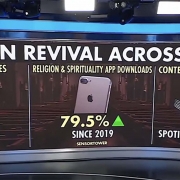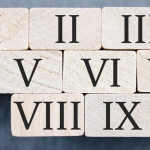No, the U.S. Constitution is not based on the book of Deuteronomy
This article originally appeared at Baptist News Global on March 11, 2024.
In addition to calling for a Coca Cola-sponsored decapitation of Donald Trump’s political opponents to be broadcast live for children to watch, Turning Point USA CEO Charlie Kirk is making headlines again, this time claiming the United States government was formed based on the book of Deuteronomy.
“The comparisons of the U.S. Constitution with the book of Deuteronomy go back at least to the 1980s.”
“Out of all the books both secular and religious that were quoted the most in the founding of the country, Deuteronomy was by far quoted the most,” Kirk argued at a Turning Point USA Faith Event in North Carolina last month. “Deuteronomy talks about separation of powers, consent of the governed, an independent judiciary; the form of our government is directly inspired from Deuteronomy. And it makes sense because Moses is basically telling, ‘Hey Joshua, this is how you set up the government. You’re about to get into the land of milk and honey, you’re about to enter Canaan, this is how I recommend you set things up.’”
It’s a common claim by Christian nationalists. And while many critics of Christian nationalism believe the movement is a phenomenon that took off since Trump’s rise to the White House in 2016, the comparisons of the U.S. Constitution with the book of Deuteronomy go back at least to the 1980s.
But was the U.S. Constitution based on the book of Deuteronomy? And perhaps more concerning, what is it about the book of Deuteronomy that resonates with authoritarian Christians so much?

Charlie Kirk speaks to a gathering sponsored by the Conservative Baptist Network during the SBC annual meeting.
The absence of the Bible in developing the U.S. Constitution
According to a Supreme Court brief about “the clash between religious liberty and same-sex relations,” two Alabama attorneys argued: “We cannot fully appreciate the importance of religious freedom (sometimes called liberty of conscience) to the Framers of the Constitution without recognizing the role the Bible played in their thought.”
They pointed to a law passed Oct. 4, 1982, that declared 1983 to be the “Year of the Bible.” According to the brief, “The statute recognizes that ‘biblical teachings inspired concepts of civil government that are contained in our Declaration of Independence and the Constitution of the United States.’”
Then in 1984, Donald Lutz and Charles Hyneman published an article in The American Political Science Review titled, “The Relative Influence of European Writers on Late Eighteenth Century American Political Thought.”
According to their research, 34% of the citations they studied from documents written by the Founding Fathers were from the Bible. But Lutz added: “Anyone familiar with the literature will know that most of these citations come from sermons reprinted as pamphlets … amounting to at least 10% of all pamphlets published. These reprinted sermons accounted for almost three-fourths of the biblical citations.”
When Lutz limited his research to 1787 and 1788, which were two key years for forming the U.S. government, the Federalists cited the Bible 0% of the time, while the Antifederalists who were against the Constitution cited the Bible just 9%. Lutz reflected: “The Bible’s prominence disappears, which is not surprising since the debate centered upon specific institutions about which the Bible has little to say. The Anti-Federalists do drag it in with respect to basic principles of government, but the Federalists’ inclination to Enlightenment rationalism is most evident here in their failure to consider the Bible relevant.”

Thomas Jefferson Bible (Photo: Natoinal Museum of American History)
Misrepresenting the data
Soon after Lutz’s research was released, religious and political conservatives began misrepresenting his data. The work most often referenced over the last four decades has been David Barton’s flawed book, “The Myth of Separation: What Is the Correct Relationship Between Church and State?”
One might assume Barton would have mentioned the 34% Bible citation number Lutz found without noting the other data that don’t support his viewpoint. But Barton didn’t do that. Instead, he tripled Lutz’s numbers, claiming 94% of the founders’ citations were from the Bible.










Leave a Reply
Want to join the discussion?Feel free to contribute!